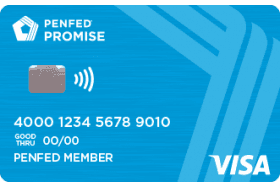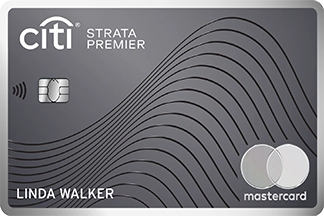- myFICO® Forums
- FICO Scoring and Other Credit Topics
- Understanding FICO® Scoring
- Re: How bad are my lates hurting me.
- Subscribe to RSS Feed
- Mark Topic as New
- Mark Topic as Read
- Float this Topic for Current User
- Bookmark
- Subscribe
- Mute
- Printer Friendly Page
How bad are my lates hurting me.
Is your credit card giving you the perks you want?
Browse credit cards from a variety of issuers to see if there's a better card for you.
- Mark as New
- Bookmark
- Subscribe
- Mute
- Subscribe to RSS Feed
- Permalink
- Report Inappropriate Content
How bad are my lates hurting me.
I am desperately trying to figure out how much my late payments are hurting my credit score. Even if only a best guess.
14 missed payments. (12) 120 day lates June 2017-June 2018 and a few 90 and 60 day lates preceding those. I know they lose significance as time passes but is it reasonable to assume they could be costing me 50 or more points on my credit score almost 5 years later.
My FICO with experian is 765. My utilization is under 3%. Available revolving credit 60k. Student Loans of 35k left on original 45k. Car Loan 16k remaining on 50k. No mortgage now or ever. 4 years 7 months from last missed payment. AAOA 7 years. Oldest account 19 years. Newest account 3 months. 13 credit cards. 8 student loans from years ago which helps my AAOA as my oldest credit card is 7 years and the majority at 2-3 years old.
- Mark as New
- Bookmark
- Subscribe
- Mute
- Subscribe to RSS Feed
- Permalink
- Report Inappropriate Content
Re: How bad are my lates hurting me.
@jvn wrote:I am desperately trying to figure out how much my late payments are hurting my credit score. Even if only a best guess.
14 missed payments. (12) 120 day lates June 2017-June 2018 and a few 90 and 60 day lates preceding those. I know they lose significance as time passes but is it reasonable to assume they could be costing me 50 or more points on my credit score almost 5 years later.
My FICO with experian is 765. My utilization is under 3%. Available revolving credit 60k. Student Loans of 35k left on original 45k. Car Loan 16k remaining on 50k. No mortgage now or ever. 4 years 7 months from last missed payment. AAOA 7 years. Oldest account 19 years. Newest account 3 months. 13 credit cards. 8 student loans from years ago which helps my AAOA as my oldest credit card is 7 years and the majority at 2-3 years old.
1. Welcome to the forum.
2. No one can possibly answer your question.
3. They're not hurting you terribly since your score is 765.
4. Why are you desparate to know? What difference does it make? You know they're not good, and you know they're going away in the near future.































Total revolving limits 568220 (504020 reporting) FICO 8: EQ 689 TU 691 EX 682
- Mark as New
- Bookmark
- Subscribe
- Mute
- Subscribe to RSS Feed
- Permalink
- Report Inappropriate Content
Re: How bad are my lates hurting me.
As @SouthJamaica said, way to many unknown's for a good answer.
My youngest daughter has similar age of accounts, no loans, low utilization and her ficos are mid 830's
So my guess 50+ is likely
- Mark as New
- Bookmark
- Subscribe
- Mute
- Subscribe to RSS Feed
- Permalink
- Report Inappropriate Content
Re: How bad are my lates hurting me.
@jvn wrote:I am desperately trying to figure out how much my late payments are hurting my credit score. Even if only a best guess.
14 missed payments. (12) 120 day lates June 2017-June 2018 and a few 90 and 60 day lates preceding those. I know they lose significance as time passes but is it reasonable to assume they could be costing me 50 or more points on my credit score almost 5 years later.
My FICO with experian is 765. My utilization is under 3%. Available revolving credit 60k. Student Loans of 35k left on original 45k. Car Loan 16k remaining on 50k. No mortgage now or ever. 4 years 7 months from last missed payment. AAOA 7 years. Oldest account 19 years. Newest account 3 months. 13 credit cards. 8 student loans from years ago which helps my AAOA as my oldest credit card is 7 years and the majority at 2-3 years old.
Likely 55 - 65 points if you have no other derogatories on file. Assuming all the lates fell off tomorrow you still could not reach 850 due to the new account. Other undisclosed items may also be holding down your score.
Fico 8: .......EQ 850 TU 850 EX 850
Fico 4 .....:. EQ 809 TU 823 EX 830 EX Fico 98: 842
Fico 8 BC:. EQ 892 TU 900 EX 900
Fico 8 AU:. EQ 887 TU 897 EX 899
Fico 4 BC:. EQ 826 TU 858, EX Fico 98 BC: 870
Fico 4 AU:. EQ 831 TU 872, EX Fico 98 AU: 861
VS 3.0:...... EQ 835 TU 835 EX 835
CBIS: ........EQ LN Auto 940 EQ LN Home 870 TU Auto 902 TU Home 950
- Mark as New
- Bookmark
- Subscribe
- Mute
- Subscribe to RSS Feed
- Permalink
- Report Inappropriate Content
Re: How bad are my lates hurting me.
Thank you. Even though this is my first post I have enjoyed this forum for years and just reading has helped me immeasurably. I started my journey at 520 with about 100 missed payments and 8 defaulted student loans. I understand nobody can really answer this but I was hoping someone with a similar past credit profile might be able to chime in with a best guess.
As to why it is so important. I rotate through credit cards in order to take advantage of long-term 0% promotional rates to help build rentals without using traditional lenders. I apply for 2-3 cards per year and get about $40k in limits. The problem is when I max them out for that period my score takes a big hit and drops me down to the fair range. That is when the balance chasing begins and that further hurts my utilization. It is a cycle that has repeated itself several times. I am hoping it I was in the 800-810 range that the drop would still allow me to stay above 730 or so avoiding future balance chasing by the cc companies.
- Mark as New
- Bookmark
- Subscribe
- Mute
- Subscribe to RSS Feed
- Permalink
- Report Inappropriate Content
Re: How bad are my lates hurting me.
Thank you. 50 points would be very helpful.
- Mark as New
- Bookmark
- Subscribe
- Mute
- Subscribe to RSS Feed
- Permalink
- Report Inappropriate Content
Re: How bad are my lates hurting me.
Thank you for the reply thomas. I figure it will be about 4-5 years before I have a shot at 850 do to the age of my accounts but it would be nice to get a jump of 30-50 while waiting for them to age.
- Mark as New
- Bookmark
- Subscribe
- Mute
- Subscribe to RSS Feed
- Permalink
- Report Inappropriate Content
Re: How bad are my lates hurting me.
@jvn wrote:Thank you. Even though this is my first post I have enjoyed this forum for years and just reading has helped me immeasurably. I started my journey at 520 with about 100 missed payments and 8 defaulted student loans. I understand nobody can really answer this but I was hoping someone with a similar past credit profile might be able to chime in with a best guess.
As to why it is so important. I rotate through credit cards in order to take advantage of long-term 0% promotional rates to help build rentals without using traditional lenders. I apply for 2-3 cards per year and get about $40k in limits. The problem is when I max them out for that period my score takes a big hit and drops me down to the fair range. That is when the balance chasing begins and that further hurts my utilization. It is a cycle that has repeated itself several times. I am hoping it I was in the 800-810 range that the drop would still allow me to stay above 730 or so avoiding future balance chasing by the cc companies.
Your credit scores, no matter how high, will not prevent the balance chasing when cards are maxed out. The only way to avoid the balance chasing is to stop maxing out cards.
I know this is off topic, but it sounds to me like you are using personal cards for business purposes. This could cause tax, accounting, bookkeping, and legal problems, as well as attract unwanted attention from the lenders.































Total revolving limits 568220 (504020 reporting) FICO 8: EQ 689 TU 691 EX 682
- Mark as New
- Bookmark
- Subscribe
- Mute
- Subscribe to RSS Feed
- Permalink
- Report Inappropriate Content
Re: How bad are my lates hurting me.
^ Agreed. Balance chasing is triggered by maxing out credit cards and prolonged high utilization cards. High credit scores will not insulate against creditors taking adverse action for risky behavior.
The primary benefit of high credit scores is lower interest rates and higher approval odds when seeking new credit.
Fico 8: .......EQ 850 TU 850 EX 850
Fico 4 .....:. EQ 809 TU 823 EX 830 EX Fico 98: 842
Fico 8 BC:. EQ 892 TU 900 EX 900
Fico 8 AU:. EQ 887 TU 897 EX 899
Fico 4 BC:. EQ 826 TU 858, EX Fico 98 BC: 870
Fico 4 AU:. EQ 831 TU 872, EX Fico 98 AU: 861
VS 3.0:...... EQ 835 TU 835 EX 835
CBIS: ........EQ LN Auto 940 EQ LN Home 870 TU Auto 902 TU Home 950